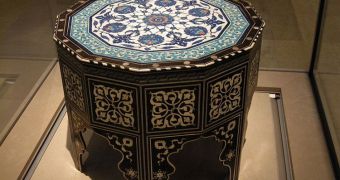Ancient texts written between 816 and 1009 AD in Iraq, during the Islamic Golden Age, may provide modern researchers with a wealth of data on abnormal climate and weather patterns, experts say.
Arabic scholars were very meticulous in putting a lot of data about what went on around them on paper, and scientists hope that this also includes unusual weather phenomena, such as significant droughts, floods, storms and so on.
A new study looked at a few texts, and determined that they contain useful information. This work could set the basis for a wider, larger-scale effort to investigate the work of past diarists, scholars and historians, from a climate perspective.
Details of the new investigation were published in a paper entitled “How useful could Arabic documentary sources be for reconstructing past climate,” which appears in the latest issue of the esteemed scientific journal Weather.
The research was carried out by a team of Spanish scientists from the Universidad de Extremadura. They say that the texts mostly deal with social and religious events that occurred at the time. However, many of them do mention unusual weather events as well.
These data could be added to other sets currently in use for climate modeling. These include ice core samples, geological records, tree ring analyses, ship logs, flight reports, and so on. Researchers even have access to logs written by captains sailing the high seas in the 18th century.
“Climate information recovered from these ancient sources mainly refers to extreme events which impacted wider society such as droughts and floods,” explains the lead author of the new study, Dr. Fernando Domínguez-Castro.
“However, they also document conditions which were rarely experienced in ancient Baghdad such as hailstorms, the freezing of rivers or even cases of snow,” adds the expert, quoted by PhysOrg.
Above all else, the new analysis demonstrated that it's possible to use informal sources for collecting relevant data, which may later fill in some of the blanks associated with our planet's climate past.
“Ancient Arabic documentary sources are a very useful tool for finding eye witness descriptions which support the theories made by climate models,” Domínguez-Castro says.
“The ability to reconstruct past climates provides us with useful historical context for understanding our own climate. We hope this potential will encourage Arabic historians and climatologists to work together to increase the climate data rescued from across the Islamic world,” he concludes.

 14 DAY TRIAL //
14 DAY TRIAL //